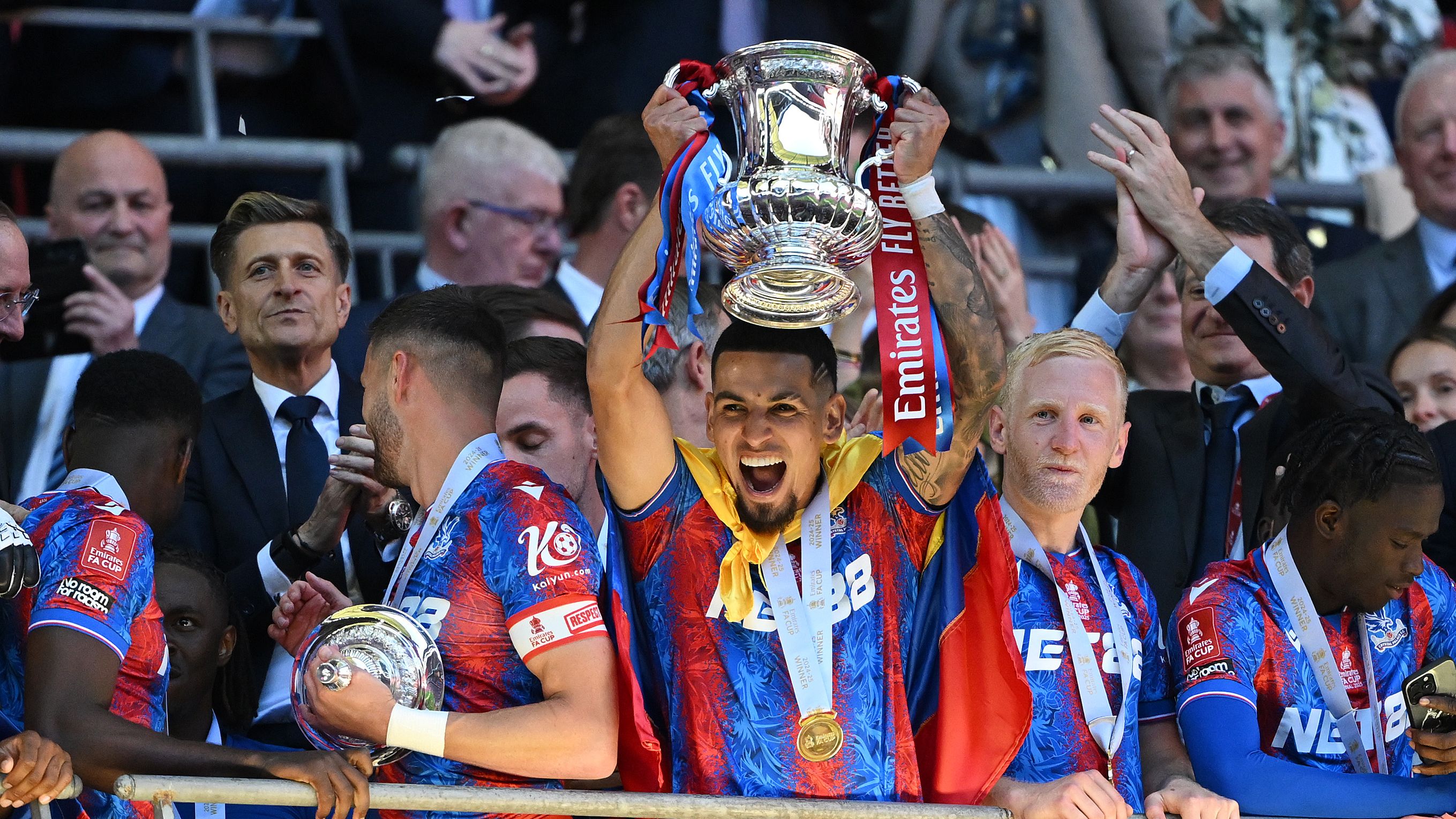UEFA’s Verdict: Crystal Palace’s Unexpected Shift to Conference League
In a stunning turn of events that has rocked the football world, Crystal Palace finds itself relegated from the Europa League to the Conference League following a decisive ruling by UEFA on multi-club ownership violations. This development highlights the complexities of international football governance and its impact on teams’ European aspirations.



Crystal Palace’s Relegation Amid Multi-Ownership Regulations
The club’s descent stems from UEFA‘s determination that Crystal Palace violated rules governing shared ownership in multiple clubs. Entrepreneur John Textor holds stakes in both the London-based team and the French outfit Lyon, which faced its own demotion from Ligue 1 over fiscal issues but successfully appealed to return to the elite division. As a result, Lyon secures the coveted Europa League position based on their sixth-place finish, leaving Crystal Palace to compete at a lower level.
The Appeal Process and Historical Context
Reports from reliable sources indicate that Crystal Palace is preparing to challenge this outcome at the Court of Arbitration for Sport. The team originally qualified for Europe’s secondary tournament through their triumph in the previous season’s FA Cup. Textor and club officials have maintained that he lacks full authority at the stadium, pointing to his recent sale of shares to Woody Johnson, who heads the New York Jets franchise. Despite these arguments, UEFA proceeded with their enforcement, underscoring the strict enforcement of ownership guidelines.
Landmark Season for European Involvement
No matter the final competition tier-whether Europa League or Conference League-the upcoming 2025-26 season marks a historic milestone for Crystal Palace, as it will be their inaugural foray into continental play. This opportunity, though overshadowed by controversy, represents a significant step in the club’s evolution on the global stage.
Impact on Transfer Strategies and Future Plans
The ambiguity surrounding their European status has notably disrupted Crystal Palace‘s transfer activities during the summer window, complicating efforts to bolster the squad. The team remains optimistic that an appeal could reverse the decision, potentially restoring their place in a more prestigious competition and reshaping their strategic direction moving forward.
Understanding the UEFA Ruling on Multi-Club Ownership
In the world of European football, UEFA’s strict regulations on multi-club ownership are designed to maintain fair play and competition integrity. Recently, UEFA enforced a significant ruling that led to the demotion of Crystal Palace from the Europa League to the Conference League. This decision stemmed from a breach involving multi-club ownership linked to FA Cup winners, highlighting how ownership rules can drastically alter a team’s European prospects.
What Constitutes a Multi-Club Ownership Breach?
Multi-club ownership occurs when a single entity or individual holds controlling stakes in more than one club, potentially creating conflicts of interest that could influence competition outcomes. In this case, the breach was tied to the FA Cup winners, who share ownership connections with Crystal Palace, violating UEFA’s guidelines.
- Key elements of UEFA’s rules: UEFA’s regulations, outlined in their Club Licensing and Financial Fair Play frameworks, prohibit clubs under the same ownership from competing in the same or overlapping competitions if it compromises sporting integrity.
- Common triggers for breaches: These often include shared board members, financial dependencies, or transfer activities that favor one club over another. For instance, if the FA Cup winners benefited from player loans or shared resources with Crystal Palace, it could be seen as an unfair advantage.
- Enforcement process: UEFA typically investigates complaints through their independent body, which reviews evidence and issues verdicts. This particular ruling involved a thorough audit of ownership structures, leading to swift action.
This breach underscores the importance of transparent ownership in football, as it prevents scenarios where wealthier groups could dominate multiple leagues and tournaments.
The Demotion Process for Crystal Palace
Crystal Palace’s drop from the Europa League to the Conference League illustrates how UEFA penalizes violations, affecting team standings, finances, and fan expectations. The demotion wasn’t just a formality; it involved a detailed reassessment of qualification slots.
- Step-by-step breakdown of the demotion:
- Initial investigation: UEFA launched a probe after reports surfaced about overlapping ownership with the FA Cup winners, examining financial records and club affiliations.
- Ruling announcement: Once confirmed, UEFA announced the breach, disqualifying Crystal Palace from their Europa League spot and reallocating it to the next eligible team.
- Conference League implications: This lower-tier competition offers fewer matches and less prestige, potentially reducing Crystal Palace’s revenue from broadcasts and sponsorships by up to 30-40%.
Fans and analysts have noted that such demotions can serve as a wake-up call for clubs to audit their ownership models, ensuring compliance to avoid future UEFA sanctions.
Impact on FA Cup Winners and Football Governance
The FA Cup winners’ involvement in this ruling brings to light broader issues in football governance, particularly how domestic successes can intersect with European regulations. While the FA Cup is a celebrated domestic trophy, its winners must navigate UEFA’s stringent multi-club ownership rules to maintain eligibility for continental play.
- How this affects other clubs: Teams linked to multiple ownership structures, like those in the Premier League, now face increased scrutiny. For example, similar breaches could lead to points deductions or transfer bans in addition to demotions.
- Broader UEFA trends: Recent years have seen UEFA crack down on high-profile cases, such as those involving clubs with ties to state-owned entities, emphasizing fair competition keywords like “UEFA multi-club ownership breach” and “FA Cup winners ruling.”
- Positive outcomes: This ruling promotes healthier competition by encouraging clubs to diversify ownership and reduce conflicts.
- Challenges for smaller teams: Crystal Palace, as a mid-table Premier League side, might struggle more than giants like Manchester City or Liverpool, losing out on Europa League exposure that boosts global branding.
Experts suggest that such decisions could lead to reforms in how football associations handle ownership, potentially introducing new UEFA-compliant audits for FA Cup participants.
Reactions and Future Implications in European Football
The football community has reacted strongly to Crystal Palace’s demotion, with discussions centering on the balance between ambition and regulation. Social media and fan forums are buzzing with debates on how this affects the Premier League’s reputation in UEFA competitions.
- Fan and expert perspectives:
- Supporter backlash: Many Crystal Palace fans feel the punishment is harsh, arguing it punishes the team rather than the owners directly.
- Analyst insights: Football pundits point out that this could deter potential investors, but it also reinforces UEFA’s commitment to ethical standards in the “Europa League demotion” scenario.
- H4: Economic fallout: Clubs might see sponsorship deals drop by 10-20% due to perceived instability.
- H4: Strategic adjustments: Teams like Crystal Palace may need to focus on Conference League success to rebuild, using it as a pathway back to higher tiers.
Moving forward, this incident highlights the evolving landscape of UEFA regulations, with keywords like “UEFI demotes Crystal Palace” gaining traction in searches related to football governance. By adhering to these rules, clubs can ensure long-term stability and fan trust in the dynamic world of European leagues.
This ruling serves as a reminder that in football, integrity often trumps immediate glory, keeping the sport engaging and fair for all involved.









